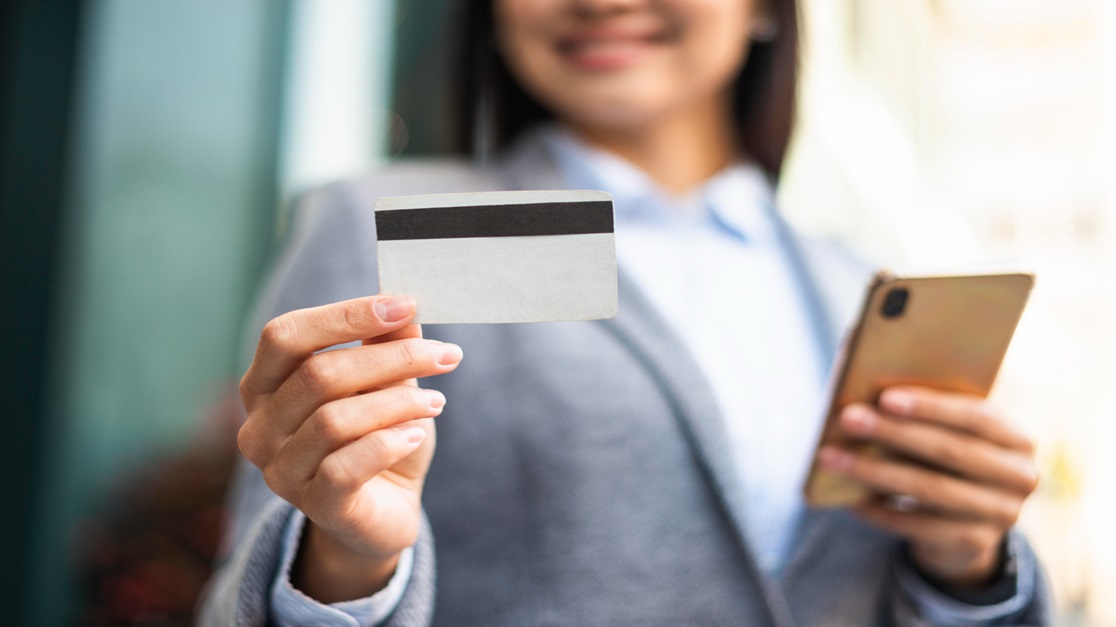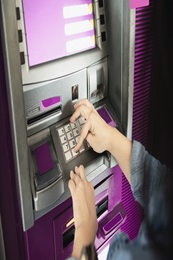What is the Difference Between Debit Card PIN and CVV Number?
May 21, 2025

Imagine you're shopping online for a new pair of shoes. You find the perfect pair, add them to your cart, and proceed to checkout. You reach for your debit card, ready to make the payment, but the website asks for your CVV number. Later, at an ATM, you're prompted to enter your PIN. You pause. What exactly is a CVV, and how is it different from your PIN? Let's unravel this puzzle.
What is a Debit Card PIN?
A Personal Identification Number (PIN) is a 4 to 6-digit code that you set up when you receive your debit card. It is used to authenticate transactions at ATMs and Point-of-Sale (POS) terminals. Without entering the correct PIN, you cannot complete cash withdrawals or in-store purchases.
What is CVV?
The CVV, or Card Verification Value, is a 3-digit security code located on the back of your debit card. For Visa, RuPay and MasterCard users, it's the last three digits on the signature strip. For American Express, it's a 4-digit code on the front. The CVV is an extra layer of security designed to protect your card from unauthorized use, especially during online and card-not-present transactions.
Key Differences Between CVV and PIN
| Feature | CVV | PIN |
| Purpose | Prevents unauthorized online transactions | Authenticates in-person transactions |
| Visibility | Printed on the back of the card | Memorized, not visible on the card |
| Functionality | Used for online purchases | Used for ATM withdrawals and POS payments |
| Security Role | Verifies online transactions | Authorizes physical transactions |
How to Safely Use Your Debit Card PIN and CVV
Protecting Your PIN:
- Never share your PIN with anyone, not even bank representatives.
- Avoid writing your PIN down or storing it on your phone.
- Use ATMs and POS terminals in well-lit, secure locations.
- Cover the keypad when entering your PIN to prevent shoulder surfing.
- Change your PIN regularly and avoid using easily guessable numbers like birthdates.
Protecting Your CVV:
- Never share your CVV with anyone over calls, emails, or text messages.
- Avoid saving your card details, including the CVV, on online shopping websites.
- Ensure you only enter your card details on secure websites (look for HTTPS in the URL).
- Regularly check your bank statements for any unauthorized transactions.
- Enable transaction alerts via SMS or email to stay updated on your account activity.
Why Both CVV and PIN Matter
The CVV acts like a secret handshake for online transactions, while the PIN serves as a gatekeeper for in-person payments and ATM withdrawals. Together, they form a comprehensive security system to protect your money.
Final Thoughts
While the CVV safeguards your debit card for online purchases, the PIN secures your in-person transactions. Understanding the difference empowers you to use your card securely and responsibly. So, whether you're shopping online or withdrawing cash, remember both codes play vital roles in keeping your money safe.
Ujjivan Small Finance Bank offers RuPay Debit Cards – debit cards that are designed to meet your unique requirements. Use RuPay Select, Classic and Platinum cards based on the Savings Account you have. Enjoy discounts and offers on your favourite brands and exclusive privileges with our Debit Cards.
FAQs
1. What happens if I share my CVV number with someone?
Sharing your CVV can expose you to fraud. Anyone with your card number and CVV can make unauthorized online purchases. Always keep your CVV confidential.
2. Can I use my debit card without a PIN?
You can use your debit card for online purchases without a PIN, but in-store purchases and ATM withdrawals require the correct PIN for authorization.
3. Is CVV required for ATM withdrawals?
No, ATM withdrawals require your debit card and PIN. The CVV is only used for online or card-not-present transactions.
4. Can I use my debit card online without a CVV?
Most online platforms require the CVV to process payments. Some platforms may store your details, but initial transactions usually need the CVV.
5. How can I protect my debit card PIN from fraud?
Never share your PIN, avoid writing it down, and cover the keypad when entering it at ATMs or POS terminals.
6. What should I do if I forget my debit card PIN?
Contact your bank immediately. They will guide you through resetting your PIN through their secure process.
7. Can someone misuse my debit card without the PIN?
Without the PIN, misuse in physical stores or ATMs is difficult. However, online fraud can occur if the CVV and card details are compromised.
8. Is it safe to save my CVV online?
It's safer not to save your CVV on websites. If necessary, use trusted sites with strong security protocols.
9. Can I change my debit card PIN?
Yes, you can change your PIN at an ATM or through your bank's mobile app or net banking service for better security.
10. Does the CVV or PIN expire?
The CVV changes when you get a new debit card. The PIN does not expire but should be updated regularly for security.
Latest Blogs

ATM Withdrawal Charges in India: New RBI Rules Effective May 1, 2025
May 13, 2025
If you frequently use your debit card at ATMs—whether for cash withdrawals or balance inquiries—it is important to be aware of recent ATM withdrawal charges and regulatory changes.

What is In-Principle Approval in Home Loan?
May 12, 2025
Buying a home is one of the biggest financial decisions most people make in their lifetime. While shortlisting properties and budgeting are crucial steps, securing a home loan is often the key that unlocks the dream of homeownership.

Top Government Housing Schemes for First-Time Home Buyers in India (2025 Guide)
May 08, 2025
For first-time homebuyers, the process of purchasing a home can be overwhelming due to increasing property prices and complex loan eligibility requirements.

Home Insurance vs Home Loan Insurance: A Detailed Guide
May 16, 2025
As of September 30, 2024, total outstanding individual housing loans stood at ₹33.53 lakh crore (₹33.53 trillion), marking a 14 % YoY increase amid a post‑pandemic housing boom.

Is There Any Penalty If You Foreclose or Prepay Your Home Loan?
May 14, 2025
Did you know nearly 40% of home loan borrowers in India prefer prepaying their loans partially or fully within the first 10 years to save on interest costs? With rising financial awareness and better income visibility, prepaying a housing loan has become a go-to strategy for faster debt freedom.

ATM Withdrawal Charges in India: New RBI Rules Effective May 1, 2025
May 13, 2025
If you frequently use your debit card at ATMs—whether for cash withdrawals or balance inquiries—it is important to be aware of recent ATM withdrawal charges and regulatory changes.

What is In-Principle Approval in Home Loan?
May 12, 2025
Buying a home is one of the biggest financial decisions most people make in their lifetime. While shortlisting properties and budgeting are crucial steps, securing a home loan is often the key that unlocks the dream of homeownership.

Top Government Housing Schemes for First-Time Home Buyers in India (2025 Guide)
May 08, 2025
For first-time homebuyers, the process of purchasing a home can be overwhelming due to increasing property prices and complex loan eligibility requirements.

Home Insurance vs Home Loan Insurance: A Detailed Guide
May 16, 2025
As of September 30, 2024, total outstanding individual housing loans stood at ₹33.53 lakh crore (₹33.53 trillion), marking a 14 % YoY increase amid a post‑pandemic housing boom.

Is There Any Penalty If You Foreclose or Prepay Your Home Loan?
May 14, 2025
Did you know nearly 40% of home loan borrowers in India prefer prepaying their loans partially or fully within the first 10 years to save on interest costs? With rising financial awareness and better income visibility, prepaying a housing loan has become a go-to strategy for faster debt freedom.

ATM Withdrawal Charges in India: New RBI Rules Effective May 1, 2025
May 13, 2025
If you frequently use your debit card at ATMs—whether for cash withdrawals or balance inquiries—it is important to be aware of recent ATM withdrawal charges and regulatory changes.





